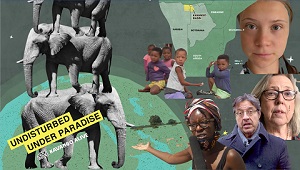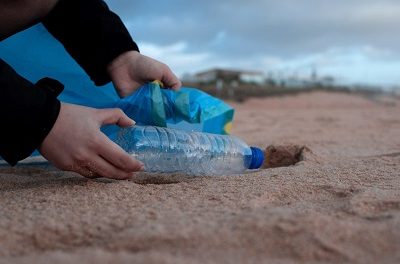
Greta Thunberg, George Monbiot & Bob Scholes team-up for Kavango Alive

Kavango Alive, a Namibian-led, grass-roots international campaign, is set to release a stirring, star-studded, short documentary that sheds light on Africa’s current oil and gas onslaught, in the face of Climate Change’s most severe impacts.
Narrated by acclaimed journalist and environmentalist George Monbiot, the ten-minute docu-drama illustrates the atrocities of blatant corporate ecocide in Africa through the voices of indigenous community members in the region and across the planet.
It also features iconic climate activist Greta Thunberg, renowned late IPCC author, South African Bob Scholes (dedicated to his memory), as well Canadian Green Party leader Elizabeth May, and several local and global voices.
Produced by Kavango Alive, in cooperation with global partners, the video is timed for release with the International Panel on Climate Change’s latest Working Group Report III. The report outlines the threat of severe drought and famine in Africa unless global heating is kept to under 1.5 degrees centigrade, as illustrated by the testimonies of indigenous and local communities and local scientists and experts. Produced by more than 1,000 physical and social scientists, the report has been unanimously approved by the governments of 195 nations. The video, in turn, captures the grass-root manifestation of what the report warns against, embodying the hope and power of local community-led solutions.
A crown jewel of Africa nestled in the southern Kalahari desert, the Okavango Delta is home to Africa’s last great untouched oasis. A mere 250km upstream, the Kavango Region, in the northeast corner of Namibia and Botswana, has been earmarked for fossil fuel exploration by Canadian oil company Recon Africa. The company currently holds a licence to drill a potential total of 120 billion barrels of oil and gas from the basin, essentially a carbon bomb threatening the planet. This represents 1/6th of the remaining carbon budget available to the entire planet.
When asked for comment, Recon Africa’s former chair, Jay Park, explained how they “were looking for under-explored areas in the world with the potential for large discoveries of oil and gas. And Namibia came out very high on that list. So we [took] a licence, and now we are moving ahead to explore it. We are expected to confirm the existence of a working hydrocarbon system soon. The sky’s the limit for this company when we do that.”
This is a deal that threatens every corner of our planet – and directly juxtaposed to the binding agreements made between world powers agreed upon at COP26 in Glasgow last year. Fridays for Future (FFFW) in Windhoek says it is completely inconsistent for the governments of Namibia and Botswana who claim to be reducing emissions and upholding the Paris Agreement while allowing this project to proceed. The UN has since recognised current pledges to cut emissions as woefully inadequate to prevent a climate and ecological planetary catastrophe.
“Instead of drilling for more oil and gas, we need clean energy such as solar electricity and wind power to stand even a small chance of avoiding environmental collapse. We must leave oil and gas in the ground and listen to the voices of Africa,” said FFF Windhoek, “What happens in Kavango, won’t stay in Kavango.”











































